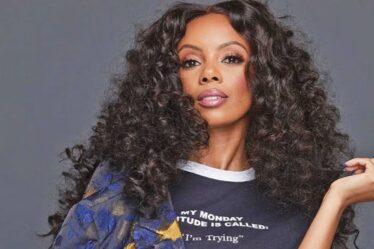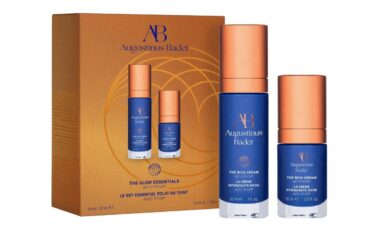
News this week that might tip the anti-avocado on toast boomer brigade over the edge: instead of saving for a mortgage, millennials and Gen Z are spending upwards of £30 on luxury laundry detergents.
On Tuesday, Barbara Sturm, a German aesthetics doctor whose namesake skincare line is loved by Gwyneth Paltrow and Oprah, added a new category to her product line: Sturm Home Laundry Detergent. Priced at £40 a litre (for comparison a litre of a supermarket own-brand hovers around £3), it comes in a slick white plastic pouch and includes a silver branded measuring cup.“As the next, natural chapter in her 360° anti-inflammatory methodology …” reads the marketing blurb. “An ecological, plant-based formulation that’s free from preservatives, enzymes, microplastics, dyes, brighteners and other potential irritants and created specifically with the skin in mind”.
American brand The Laundress was first to kickstart the fancy foam trend when, in 2014, it collaborated with the cult fragrance brand Le Labo on a range of detergents with the tagline “who says perfume is just for your body?”. However, last year, it came to a sudden halt when it faced mass recalls due to contaminated products. Since then, a string of brands have tried to fill the gap left by the OG luxe laundry brand.
These tend to fall into two camps: 1. Existing perfume brands who have added detergent as a new way of doubling up on fragrance and 2. Newly launched brands that know that – with the right marketing – they will attract a customer willing to pay a premium for what once was an everyday essential.
In the former camp, you’ll find the French perfumer Maison Francis Kurkdjian which bases its detergent (£39 for one litre) around its bestselling fragrance, Aqua Universalis, “a fresh and breezy fragrance which unites skin and clothing”. Meanwhile, California brand DedCool has several “Dedtergent” offerings based around its bestsellers. Its recent collaboration with fellow cult brand Ouai that promised to make clothes smell like “L.A. sunsets and valet parking” sold out within days.
In a sign that the trend that is really taking off, in February M&S launched its own version of a plant-based laundry liquid. A spokesperson for the high street giant says it worked with a top Parisian perfume house to create the sandalwood and bergamot scent, which TikTok users quickly declared was a “dupe” of designer versions – the highest form of social media praise. 1.5 litres of the M&S detergent costs £5.50. As it started to go viral, customers were buying over 100,000 bottles a week, a 180 % increase on laundry sales year on year.
Just as Aesop has come to dominate bathroom sinks, these luxe laundry detergents go much further than cleaning clothes. They are a cultural signifier, suggesting that not only are they better than your usual supermarket bargain buy for your clothes, your skin and the environment but that they can elevate your lifestyle too.
With aesthetically pleasing packaging – all minimalist branding and sans serif fonts – they boast about being vegan, sustainable and, most importantly, smelling really good. As with a perfume label, there are mentions of notes featuring niche plants, essential oils and woody aromas, rather than a catch-all term such as Lenor’s Spring Awakening or Surf’s Tropical Fresh.
They come in see-through cylinders, never cardboard boxes. And instead of being stacked on supermarket shelves, they are stocked in upmarket department stores including Selfridges or found alongside the bottles of orange wine and tins of Perello olives in hipster grocery shops.
In the UK, the biggest bespoke brands are Kair, which refers to detergent as a “signature clothing wash”; Steamery, which says its detergents are “designed to nourish”; and The Lab Co, which categorises detergent by mood including “relaxing” and “energising”.
after newsletter promotion
Prices range from £18 for 500ml of Kair’s signature juniper and bergamot wash to a more reasonable sounding £9 for a litre of The Lab Co’s lavender-based detergent, which is said to “give you that zen feeling from the minute you open the washing machine door”.
This luxe laundry trend has coincided with the boom of “CleanTok”, a dedicated section of TikTok featuring “clean-fluencers” such as Mrs Hinch. The hashtag has amassed 27bn views. Doing laundry has been rebranded as a self-care ritual with instructions to be mindful as you separate your lights from darks. Many “Sunday Reset Routines” online feature users doing a week’s worth in one day. Then there are the house tours, with dedicated laundry rooms boasting both a washing machine and a tumble dryer, plus a separate Belfast sink for delicates. Unlike other cleaning products – often decanted into glass jars then labelled – luxe liquids are left in their own chic packaging. They are to be displayed on open shelves, not shoved under the sink.
For many, these purchases are just another “everyday little luxury”, an indulgence that gives a dopamine rush that retailers are reporting to be seeing even more of during hard economic times. With property prices at an all-time high, many of us can only dream of buying a house, never mind one with enough space for a laundry room. Rentals with outdoor space have become another unattainable luxury, with rented flats often resembling a jumble sale as tenants string up clothes and bedsheets in an attempt to get them to dry quickly. Anyone that has faced this battle during winter will know that by day three their clothing will have amassed a unique musty odour. £40 for a scented laundry liquid that could overpower it? Well, that’s priceless really.
If you want to read the complete version of this newsletter please subscribe to receive Fashion Statement in your inbox every Thursday.



